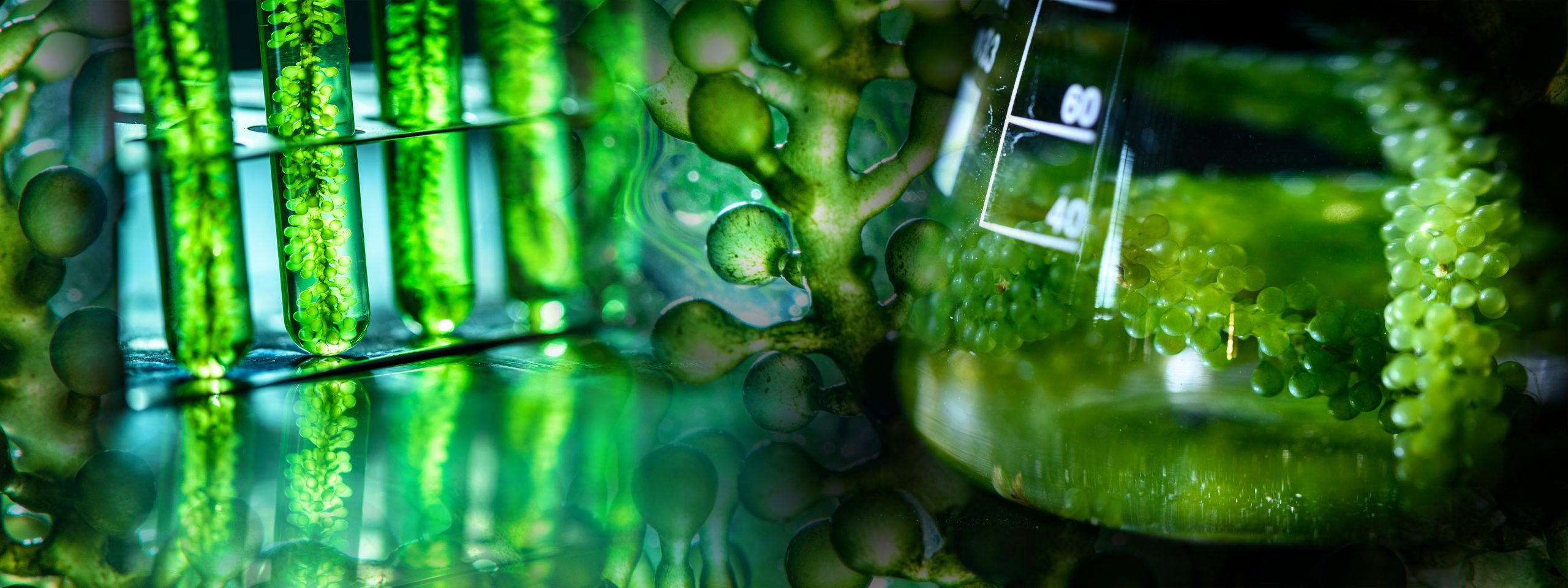Blog

A microalga that has been consumed for years due to its nutritional value and health benefits- Spirulina is considered a superfood and a miracle from the sea. It was once classified under the Plant Kingdom due to its richness in plant pigments and ability to photosynthesis; however, a new understanding of its genetics, physiology and biochemical properties caused scientists to move it to the Bacteria Kingdom.
Spirulina is rich in nutrients, some of which aren’t found in the average daily vitamin. According to the Food and Drug Administration (FDA), Spirulina contains significant amounts of calcium, niacin, potassium, magnesium, vitamin B and iron. It also has essential amino acids (compounds that are the building blocks of proteins). In fact, protein makes up about 60-70 percent of Spirulina’s dry weight. The high phytonutrient content of Spirulina is considered as an alternative food for vitamin supplements.
The Importance in Diet
The micronutrients that are contained in the algae are essential for the proper functioning of the human body. It would require an individual to consume several kinds of foods on a daily basis to be able to receive all these nutrients at once but Spirulina makes it easier by providing these all at the same time.
Vitamin B12 is one of the nutrients that’s difficult to obtain in a meatless diet because no common food plant contains it. The exceptionally high Vitamin B12 (cobalamin) content in Spirulina is the perfect supplement in this scenario. Spirulina is four times as rich in B12 compounds as raw liver, which for the longest time has been put forth as the best source of this vitamin.
Effects on Immunity/Wellness
Most of the studies administered in the scientific research of Spirulina contain only a small sample size of people. However, these studies have proven to offer great insight into the effectiveness of the microalga.
In a study published in Cellular & Molecular Immunology, it was found that “twelve weeks of spirulina supplementation were associated with increased counts of white blood cells, the foot soldiers of the immune system, with older women reported to respond more rapidly.” (Selmi, Leung & Fischer 2011).
Spirulina is known to increase the production of antibodies, infection-fighting proteins, and other cells that improve immunity and ward off infection and chronic illnesses, such as cancer.
Spirulina is concentrated with zeaxanthin, a plant pigment that may reduce the risk of cataracts and age-related vision loss. Its antibacterial properties may also help promote good oral health. One study found that spirulina-enhanced mouthwash reduced dental plaque and the risk of gingivitis in participants. Another study showed that it lowered the risk of oral cancer in people who chew tobacco.
In conclusion, it may improve one’s levels of blood lipids, suppress oxidation, reduce blood pressure and lower blood sugar. While more research is needed before any strong claims can be made, Spirulina is definitely one of the few superfoods that are worthy of the title.
Source:
- Selmi C, Leung PS, Fischer L, et al. The effects of Spirulina on anemia and immune function in senior citizens. Cell Mol Immunol. 2011;8(3):248-254.
Cox, Lauren. “Spirulina: Nutrition Facts & Health Benefits.” LiveScience, Purch, 7 Feb. 2018. - Brennan, Dan. “Spirulina: Are There Health Benefits? Pros and Cons, Nutrition, and More.” WebMD, WebMD, 6 Oct. 2020, www.webmd.com/diet/spirulina-health-benefits#2.
